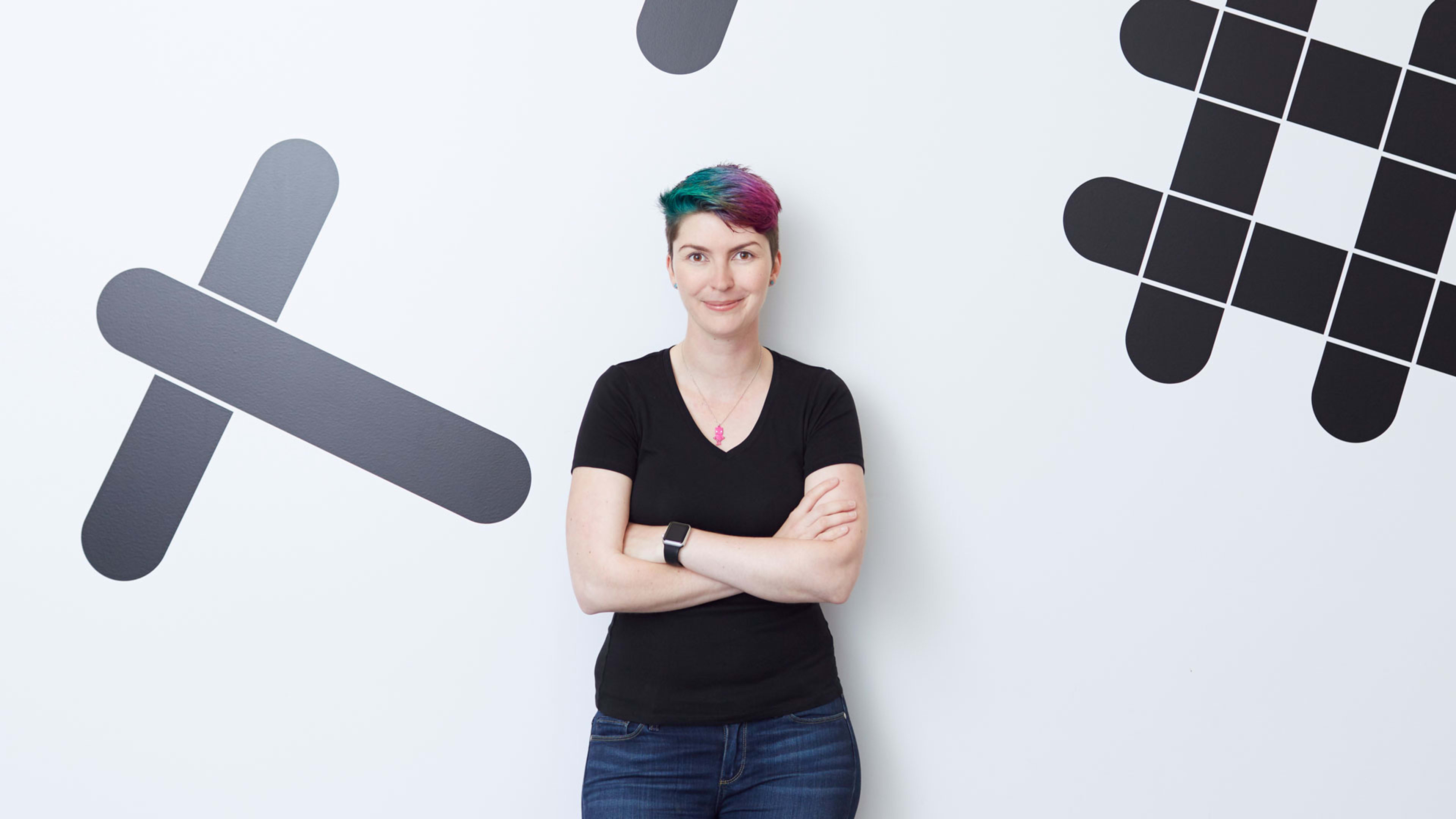The November 2016 election caused an existential crisis for Leigh Honeywell, a Canadian security engineer who was working for Slack in the Bay Area. “After the election, I felt really strongly the call to act. And I wasn’t sure what that action [should be],” says Honeywell, who had donated technical assistance to the Hillary Clinton campaign. “Is this something where I go home and work on election security back home?”
But she was soon encouraged at the end of the month by seeing “a lot of new faces” at a meeting of tech workers and activists for a new organization called Tech Solidarity. From there, Honeywell brought together other techies to craft the Never Again pledge, signed by over 2,800 tech-industry workers in December 2016. Each promised to not work on projects they found to be immoral.
Honeywell emphasizes that Never Again was not a petition, which she derides as a supplication. “It being a pledge, it’s a statement of people’s values, a statement of actions that people are going to take, or not take, given a particular circumstance.” Those actions have gone as far as quitting, as engineers from Google have done this year over an AI project for the Pentagon and a censored search engine for the Chinese government.
The stakes weren’t as high for Honeywell. “I didn’t face consequences because my company was very supportive,” she says. “And I was able to enlist the help of people who [weren’t in a] precarious immigration situation.” But she learned to keep a low profile for another reason: her association with a hot tech startup. “The press was like a bunch of wolves for anything that had to do with Slack,” she says. “There was a danger in the press making it about ‘Slack employee does X,’ versus ‘A bunch of tech employees do X.'”
Related: How tech workers became activists
Never Again was one in a series of Honeywell’s activism projects, including awareness-raising “pranks” like Ally Bingo, surreptitiously introduced at the 2014 Grace Hopper Celebration of Women in Computing conference (where Microsoft CEO Satya Nadella made his infamous “trust karma” comment). During an all-man panel about “Male Allies” of women in tech, hundreds of attendees checked off squares on a bingo card marked with predictable actions, such as “Calls a woman articulate” and “Name-drops Sheryl Sandberg” (Facebook’s COO).
“About halfway through the panel, somebody actually got up and yelled ‘Bingo!’ Everybody just kind of lost it,” says Honeywell. The stunt motivated some of the men to hold a “listening session” the next day. “Several hundred women attended and got to be like, ‘No, actually this is my experience at your company with gender discrimination, so don’t you get up on stage in front of me and tell me how awesome you are,'” she recalls.
Outside the spotlight, Honeywell has spent years counseling whistleblowers and sexual violence victims on how to handle online harassment. “I worked with a number of people in the background last fall as the #metoo stuff was popping and helped them lock themselves down before they went public,” she says, as an example.
Now Honeywell is converting that volunteer work into a business, called Tall Poppy. It will offer social media counseling as a benefit that companies provide their workers, like health insurance against trolls. “Online harassment disproportionately targets women, disproportionately targets people of color, LGBT [people], folks with disabilities. I want to get employers to pay for it for their whole employee base in order to be able to scale up the service,” says Honeywell. ” This is basically what I’ve wanted to do for the past 10 years.”
Recognize your brand’s excellence by applying to this year’s Brands That Matter Awards before the early-rate deadline, May 3.
